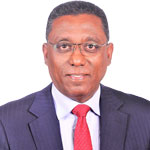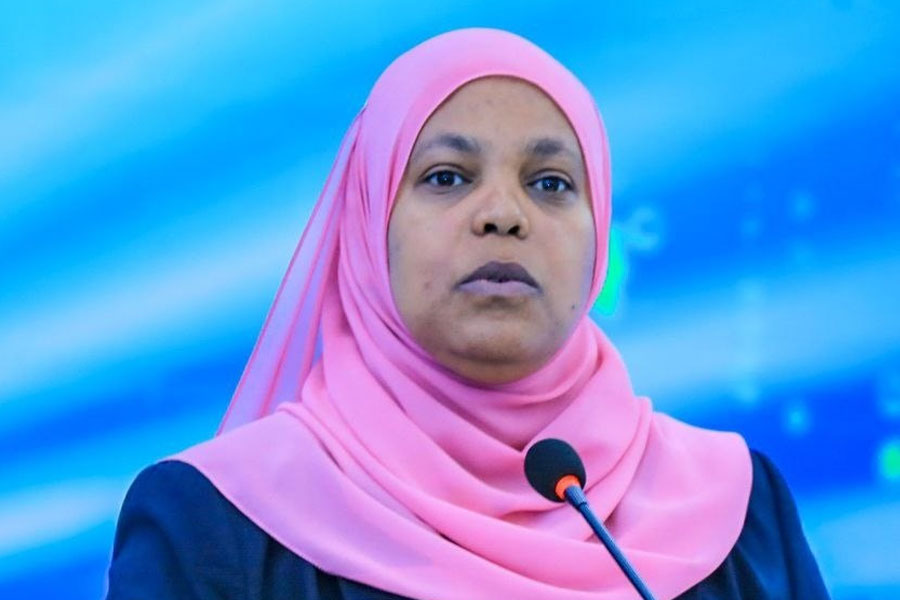
Radar | Oct 24,2020
May 4 , 2019
By Desta Mebratu (Prof.)
Ethiopia recently joined a group of African countries in signing cooperation agreements for the development of a nuclear industry sector. Most of these agreements consist of the two distinct but inter-related components that require qualitatively different attention.
The first component focuses on building national capacities for the application and use of nuclear science and technology. This is a very positive development that needs to be pursued by any country, as there are multiple benefits that could be gained from the application of nuclear science and technology in health, agriculture and industry sectors. However, the construction of a nuclear power plant for energy generation is also included in these agreements under the disguise of civilian or developmental application of nuclear science and technology.
Experience from other countries has shown that, under all conditions fulfilled, development of a sound nuclear power sector requires a minimum of 10 to 15 years. This could take much longer for most African countries as they lack some of the basic economic, institutional and technological prerequisites. However, the aggressive campaign that is being pursued by the countries that own these technologies and the increasing tendency of some African countries to jump on the bandwagon seems to compromise the acceptable norms and procedures for nuclear safety.
This will lead to major national, regional and global threats and needs to be debated openly. There are several key issues African countries need to be cautious about when signing up for such package deals in the area of nuclear power generation.
One of the false arguments used for the promotion of nuclear energy is based on the claim that it is the cleanest form of energy and contributes to the reduction of carbon dioxide emissions to the atmosphere from power generation.
It is true that nuclear energy has one of the lowest carbon dioxide emissions per unit of energy generated. However, the threat from its radioactive waste is of an existential proportion, which will automatically disqualify it from being the cleanest form of energy. For those who claim it to be the safest technology, they only need to reflect on the Fukushima Daiichi nuclear disaster in Japan in 2011 to understand the dangerous possibilities.
Even if the technological advances made in recent years have made it much safer technically, the trigger factors from natural and human-made disasters are still high. For several reasons, these triggering factors are more pronounced in regions like the Horn of Africa, where human-made and natural disasters such as earth quakes are still high.
The other misleading justification that is being told by promoters of nuclear energy is that country’s like Ethiopia cannot rely on their huge hydropower generation potential because of the change in rainfall patterns that will be caused by climate change. It is true that climate variation has already become part of our reality and will continue to be a major threat in the coming decades unless appropriate measures are taken by the international community.
However, there is so much that could be done in the area of ecosystem adaptation and catchment rehabilitation to contain and possibly reverse the impact of climate change. Such measures will create multiple economic and social benefits by way of job creation and livelihood provision to local communities besides ensuring the sustainability of hydropower generation.
Development in African countries has been influenced for decades by trends of incidental leapfrogging that is supply-driven by external factors. Most of these developments, which were more of transplanting rather than transforming, resulted in isolated pockets of change that benefited the few at the expense of broad societal benefits.
Ethiopia and other African countries who recently decided to build nuclear power plants need to avoid making such major mistakes, which will result in stranded assets that will incur huge costs for generations to come.
PUBLISHED ON
May 04,2019 [ VOL
20 , NO
992]


Radar | Oct 24,2020

Viewpoints | Dec 25,2021

Viewpoints | Jun 10,2023

Fortune News | Mar 16,2019

In-Picture | May 11,2025

Viewpoints | Jul 17,2022

Commentaries | Jul 23,2022

Agenda | Aug 17,2025

Radar | Aug 18,2024

Fortune News | Jun 21,2025

Photo Gallery | 178752 Views | May 06,2019

Photo Gallery | 168948 Views | Apr 26,2019

Photo Gallery | 159792 Views | Oct 06,2021

My Opinion | 137107 Views | Aug 14,2021
Commentaries | Oct 25,2025

Dec 22 , 2024 . By TIZITA SHEWAFERAW
Charged with transforming colossal state-owned enterprises into modern and competitiv...

Aug 18 , 2024 . By AKSAH ITALO
Although predictable Yonas Zerihun's job in the ride-hailing service is not immune to...

Jul 28 , 2024 . By TIZITA SHEWAFERAW
Unhabitual, perhaps too many, Samuel Gebreyohannes, 38, used to occasionally enjoy a couple of beers at breakfast. However, he recently swit...

Jul 13 , 2024 . By AKSAH ITALO
Investors who rely on tractors, trucks, and field vehicles for commuting, transporting commodities, and f...

Oct 25 , 2025
The regulatory machinery is on overdrive. In only two years, no fewer than 35 new pro...

Oct 18 , 2025
The political establishment, notably the ruling party and its top brass, has become p...

Oct 11 , 2025
Ladislas Farago, a roving Associated Press (AP) correspondent, arrived in Ethiopia in...

Oct 4 , 2025
Eyob Tekalegn (PhD) had been in the Governor's chair for only weeks when, on Septembe...

Oct 25 , 2025 . By YITBAREK GETACHEW
Officials of the Addis Abeba's Education Bureau have embarked on an ambitious experim...

Oct 26 , 2025 . By YITBAREK GETACHEW
The federal government is making a landmark shift in its investment incentive regime...

Oct 29 , 2025 . By NAHOM AYELE
The National Bank of Ethiopia (NBE) is preparing to issue a directive that will funda...

Oct 26 , 2025 . By SURAFEL MULUGETA
A community of booksellers shadowing the Ethiopian National Theatre has been jolted b...